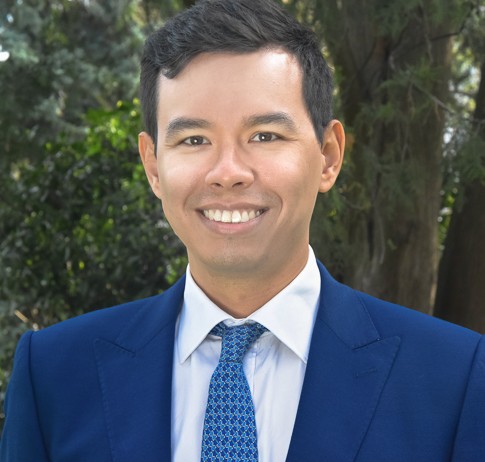#WithersWorldCup #WhoWillWin
We hope you have been enjoying our coverage of the group stage.
Whether or not you are a football fan, a global event such as the FIFA World Cup 2018 brings together communities from all around the world. Teams with different playing styles and fans with different cultures. As we move into round two, we continue to highlight the weird and wonderful legal quirks of the participating teams and the similarities and the differences between diverse nations and legal systems. Every day we'll release our brief comparisons of the teams involved in games and our conclusions as to who we think 'wins' in the legal stakes. With our global teams having their say, will our predictions reflect the outcome of the World Cup? Follow us to find out*.
So far, our predictions have been fairly accurate (who else thought that Mexico would beat Germany?). Will this continue? You can view our comparisons on group games in rounds one, three, the knockout round, and the final stages.
Panama v England - Sunday 24 June
Panama are a relatively unknown country in footballing terms with this being their first World Cup. England have never managed to replicate the glory of 1966 but who is going to come out on top for tax planning purposes?
Panama has been favoured by footballers, as a jurisdiction for holding assets through anonymous companies with the benefit of a territorial tax system, which exempts from tax all income earned outside Panama. However, following the 'Panama Papers' exposé and the advent of automatic international reporting and exchange of information about beneficial ownership, jurisdictions such as Panama have lost their appeal from a planning perspective and are associated (even if unfairly) with tax avoidance.
England is a white-listed jurisdiction which offers more acceptable methods of tax planning for foreigners living here (the 'remittance basis' of taxation) in addition to greater transparency.
2-1 to England
Phineas Hirsch, Associate, private client and tax, London
Japan v Senegal - Sunday 24 June
Japan and Senegal both got off to great starts by winning their opening fixtures and if either team win here, they’ll be pretty much guaranteed a spot in the last 16. While the managers review their team’s systems before kick off, we'll check out how the legal systems in each country shape up.
Japan, the world's third largest economy has long been attractive for footballers as a major destination for foreign direct investment. It has a well-developed legal system and independent judicial system that protects foreign investors. But such investors in the Japanese market can face significant challenges, some governmental in nature, such as the high corporate tax rate, and others, non-governmental in nature, such as cultural and linguistic barriers. It's declining population will continue to put pressure on the consumption tax system, with future tax rate increases likely.
Senegal offers a stable political environment, and a growing economy for footballers. It's civil law legal system is based on the French model, and is regarded as one of the most functional systems in francophone Africa. However, it can be a challenging environment for resolving disputes and enforcing property rights, as the existing legal framework can be cumbersome and slow.
We are calling this one a draw 1-1.
Eric Roose, Partner, private client and tax, Singapore
Poland v Colombia - Sunday 24 June
Both Poland and Colombia are parties to the Convention on the Recognition and Enforcement of Arbitral Awards 1958 (The New York Convention) which means that a final and binding arbitral award issued in Colombia will be recognised as binding and enforceable by Polish courts in Poland and vice-versa. However, Article V of the Convention provides grounds for refusal and both countries have the right to refuse enforcement if it is in contradiction with their public policy. Both Colombian and Polish courts apply this restrictively so will only refuse enforcement if awards are in contradiction with their fundamental legal principles.
So, a 1-1 draw for this game.
Ruzin Dagli, Associate, litigation and arbitration, London
Belgium v Tunisia - Saturday 23 June
As Belgium and Tunisia's finest prepare to face each other we asked: if a talented foreign footballer wanted to join the national team how long would it take to naturalise?
In both cases, ordinary mortals need five years' residence and to speak the language. However, Belgium offers accelerated naturalisation to those who can demonstrate extraordinary merit of a sporting nature and would make a special contribution to Belgium's international image; and Tunisia, to someone who has rendered exceptional services or whose naturalisation would be of exceptional interest to the country.
Everything points to a draw, but there's a last minute unconfirmed report that Tunisia has scored an own goal: 4 out of 5 naturalisation applications are left to languish unresolved.
2-1 to Belgium
Alice Garside, Associate, immigration, London
South Korea v Mexico - Saturday 23 June
Athletes thinking of moving to South Korea or Mexico to practice their craft should familiarise themselves with each country's differing tax treatment of residents and non-residents.
In South Korea, residents are taxed on income they earn anywhere in the world but non-residents are subject to tax on income from only South Korea. Foreign corporations with a permanent location in South Korea pay the standard income tax rate but those without a permanent location in South Korea, who are involved in personal services, interest on bonds and financial instruments, and leasing income from vessels and heavy equipment, pay taxes at the rate ranging from 2%-20%.
In Mexico, non-residents who supply goods and services in Mexico have to register for VAT and are given the same treatment as everyone else paying VAT. If the business does not have an office in Mexico, they must appoint a fiscal representative to do the VAT registration. Foreign companies in Mexico are subject to the same tax system as Mexican companies but receive some exemptions. Many states try to attract foreign investors by giving them tax incentives but the federal government increases those taxes.
This has to be a 1-0 win to South Korea.
Michael Rueda, Associate, corporate and sports, New York
Germany v Sweden - Saturday 23 June
Whilst tonight's game is likely to be a win for 2014 winners Germany, the countries' respective parental rights are too close to call.
In Sweden, both parents can stay off work until the child is 18 months old, dividing a paid parental leave quota of 480 days between them. For 390 of those days, parents are entitled to nearly 80% of their normal pay (up to a maximum of EUR2,800 per month).
If you thought that sounded good, in Germany parents can each take up to three years off following the birth of a child. However, parents are limited to 14 months' paid leave between them, at two-thirds of their normal pay (up to a maximum of EUR1,800 per month).
Consider this a 1-1 draw.
James Hockin, Associate, employment, London
Brazil v Costa Rica - Friday 22 June
Costa Rica were one of the biggest surprises at the last World Cup in 2014, while Brazil are the most decorated country in history, having won the tournament 5 times. But, how will the teams fair this time round? We take a look at how hunting laws differ between both countries.
Costa Rica was the first Latin American country to ban hunting as a sport. The country has a very environmentally friendly mindset and about 25% of its land is protected as national parks and reserves. The punishment for hunting is now four months in prison or finds up to $3,000. There are also punishments for those who take wild animals to keep as pets or steal them.
In Brazil since 1967 the country has been trying to strictly forbid hunting as a profession. The only hunting that is allowed in the country is subsistence hunting, which is to allow for the preservation of the lifestyle of indigenous tribes. However, in 2013 Brazil allowed the European wild boar to be hunted as it was an invasive species.
Suggesting a 1-0 win to Costa Rica here.
Michael Rueda, Associate, corporate and sports, New York
Nigeria v Iceland - Friday 22 June
Head to head today in FIFA’s World Cup in Russia go Nigeria and Iceland.
The Nigerian legal system governing succession might be described as a colourful away strip - made up of Nigerian legislation and judicial precedent, English Law, Islamic Law and local Nigerian customary laws. The respect for local customary laws is such that local customs which restrict a person’s freedom to choose who inherits their property by will can expressly override inheritance legislation.
Iceland’s style is rather less flamboyant, but no less effective. It’s legislation simply prescribes that the freedom of a person with descendants to choose who inherits their property by will is limited to one third of their property.
Unless one side has a game-changing professional adviser, it looks like the dispute between two contrasting teams should result in a 2-2 draw.
Richard Walker, Associate, trust and succession disputes, London
Stephen Richards, Partner, trust and succession disputes, London
Serbia v Switzerland - Friday 22 June
Serbia and Switzerland have a few things in common. They are land locked countries and they have both produced world beating men's tennis players. Many countries complete in attracting top athletes along with international executives and high net worth individuals. Switzerland has competed for the top spot for many years.
Tax rates for individuals in Switzerland can vary widely depending on income and the canton where an individual lives. The top rate of Swiss Federal tax is 11.5%, Canton Tax and Municipal Tax vary widely from very low rates to a top rate combining all three of up to 46.5%.
Serbian tax rates are in a similar range to Switzerland a top rate of 25% to 35% depending on the type of income although there can be very high social security contributions.
Serbia taxes all residents on their worldwide income whereas Switzerland retains a special lump sum tax regime (known as the 'forfait') for HNWIs. The forfait allows individuals to pay an annual lump sum to discharge their tax liability for the year with their actual foreign income exempted from Swiss tax.
The forfait means that Switzerland edges this contest 2-1.
Ian Perrett, Partner, private client and tax, Geneva
Tom Barber, Associate, private client and tax, Geneva
Denmark v Australia - Thursday 21 June
In terms of judicial systems, Denmark's ultimate court is its Supreme Court, below which sit two High Courts and the Copenhagen Maritime and Commercial Court.
Australia's top court is the High Court, below which there is a Federal Court and, in each of 8 states and territories, a Supreme Court. The Federal Court and each Supreme Court also have their own appellate bodies. This constitutes a neat reversal of names between the two countries – one day, we'll have to research the legal difference between "High" and "Supreme"!
On the basis of numbers of (upper echelon) courts, an overwhelming "victory" to Australia, but on the basis of propensity to litigate, a hands down win to Denmark.
2-0 to Denmark
Chris Greiner, Consultant, real estate, Sydney
France v Peru - Thursday 21 June
Two great nations vie for victory – France v Peru. No golden goals for them until the knockout rounds, but do they offer golden visas?
France opens its doors to investors who create or save jobs, and invest at least €300,000. Allez les bleus? Peru will do the same for those who make a capital investment into a Peruvian company of at least €130,000 and create 5 jobs.
Peru is ahead, but will France's offering of visa-free travel in the Schengen area give it the lead? Possibly not, as it takes 5 years' residence to naturalise in France whereas economically self-sufficient migrants in Peru are eligible to naturalise after just 2 years' residence.
¡Firme Peru! 2-0
Alice Garside, Associate, immigration, London
Argentina v Croatia - Thursday 21 June
Argentina is the fifth largest wine producer in the world with grapes originating from Spain (and the era of Spanish colonialization) but more recently from its many immigrant communities. Malbec from France and Torrontes (some of whose grapes are part of the Malvasia family) are some of its famous grape varieties. Due to high altitude and low humidity of its wine producing regions Argentinian vineyards rarely face the problem of insects, fungi, molds and other grape diseases that affect foreign vineyards. This allows cultivating with little or no pesticides and easier production of organic wines.
The Croatian wine industry is older than Argentina's and dates back 2500 years to Ancient Greek settlers. EU wine regulations have ensured that the quality of Croatian wine is high; today Croatia ranks 30th of wine producing countries. At the turn of the 20th century Croatian wines finally succumbed to phylloxera, a hazardous pest of commercial grapevines that had previously ravaged French and German vineyards for 25 years. When the disease affected Croatia at the start of the twentieth century this resulted in a collapse of Croatian wine production and the movement of many wine growing families to the new world. Names like Grgich (of the Grgich Hills Estate in California) Delegats (of the Oyster Bay Winery) and Fistonich (of the Villa Maria estate) in New Zealand originate from Croatia; the Grgich family has even since re-established a vineyard in Dalmatia. Croatian families also started the iconic New Zealand Selaks and Nobilo labels today owned by the US-based drinks multinational Constellation Brands.
Many Croatians (about 120,000 mostly from Dalmatia) even moved to Argentina at the start of the twentieth century. Whilst they contributed significantly to Argentinian shipping, sporting, clerical and political life (president Nestor Carlos Kirchner was the son of a Croatian immigrant) Croatians have not made an impact on the Argentinian wine industry as they have in other new world countries.
A draw 2-2
Denis Petkovic, Partner, banking and finance, Hong Kong
Portugal v Morocco - Wednesday 20 June
Let's have an eye at Portugal v Morocco - the latter yet to make their first win in this World Cup!
Both Federations recognize the principle of contractual stability and the right to terminate the employment contract with just cause (e.g. as regards players, for outstanding salaries or 'sporting just cause'). However, while in Morocco the compensation payable as a consequence of the termination without just cause would vary on a case-by-case basis (according to a number of criteria similar of those of the FIFA Regulations on the Status and Transfer of Players), under the Portuguese Collective Bargaining Agreement between the First Division and Professional Players' Trade Union the compensation is based on the salary payable until expiry of the employment contract.
A 2-0 win for Portugal!
Stella Riberti, Associate, corporate, Milan
Uruguay v Saudia Arabia - Wednesday 20 June
If Uruguay are looking to compete with Russia for first place in group A they will need to apply the pressure with a win against a Saudi Arabia team who conceded 5 goals in their opener. Luis Suarez and co must fancy their chances based on the first round results, but how will the teams fair when we look at their Arbitration laws?
Saudi Arabia acceded to the Convention on the Recognition and Enforcement of Foreign Arbitral Awards of 1958 (the "New York Convention") in 1994. However, there remained uncertainty surrounding the enforcement of arbitral awards in Saudi Arabia. In response to criticism, Saudi Arabia has enacted a new Arbitration Law and Enforcement Law in 2012; and established the Saudi Centre for Commercial Arbitration ("SCCA") which was formally launched in 2016 and published the SCCA Arbitration Rules which are largely based on the UNCITRAL Arbitration Rules. In June 2017, the Implementing Regulations of the new Arbitration Law were published.
Uruguay acceded to the New York Convention in 1983. However, it has not to date adopted a specific arbitration law. Arbitration in Uruguay continues to be governed by the rules contained in the Civil Procedure Law (Law No. 15982). There have been a limited number of judgments dealing with enforcement of foreign awards in Uruguay since the entry into force of the New York Convention. However, the Uruguayan Supreme Court has traditionally adopted a pro-recognition and enforcement approach in these cases. Uruguay is party to a number of Inter-American and MERCOSUR Conventions dealing with international arbitration and extraterritorial validity of foreign judgments and has established a Conciliation and Arbitration Centre which also acts as an International Court of Arbitration for the MERCOSUR.
1-1 draw.
Yousra Salem, Paralegal, London
Iran v Spain - Wednesday 20 June
Iran are currently the surprise leaders of Group B having beaten Morocco in the first round, while Spain were denied a win from a brilliant last-gasp Cristiano Ronaldo free kick. Having had contrasting starts to their campaigns, how will the two compare when we look at probationary periods?
In Iran probationary periods for employment contracts cannot exceed one month for unskilled workers or three months for skilled workers. In Spain, restrictions on the duration of probation periods also apply. Unless specified in a collective bargaining agreement, the maximum period is two months for employees without higher qualifications or six months for those with.
In each case, employment can be terminated by either party at will during the probation period. However, in Iran, if the employer dismisses the employee, it must pay the employee until the end of the probation period. Being a football manager is a precarious occupation with short average tenure periods. Whilst we'd like to give Iran the win for the additional payments, the longer probation periods in Spain seal the victory!
Libby Payne, Associate, employment, London
Also...
Iran, likewise Spain, players are free to select the brand of their football boots when playing for their national team (as well as clubs). However, unlike most of (if not all) players of the Spanish Federation, Iran players do not have personal sponsors. This has been an issue in this World Cup when, just a week away from the first game, the Iran Federation's boots sponsor Nike withdrew their boots supply to the team for the World Cup. The US sportswear giant did so, by leveraging on the recent US economic sanctions against Iran. As a result, several Iran players were left without boots.
3-0 to Spain
Stella Riberti, Associate, corporate, Milan
*The information and comments in this blog are for the general information of the reader and are not intended as legal advice or opinions to be relied upon in relation to any particular circumstances. For particular application of the law to specific situations, the reader should seek professional advice.







